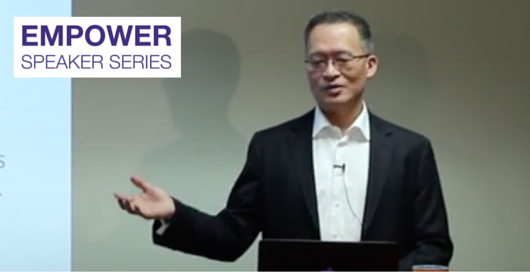Stress-related diseases are on the rise, warns Dr. David Wang.
Dr. Wang, now considered a respected elder and pioneer in the BC naturopathic community, has helped thousands of patients journey from sickness into health. Over the years he has experimented with many innovated therapies, but more and more he finds that the fundamentals of good nutrition and a balanced lifestyle, are still the most important factors in disease prevention.
The World Health Organization calculates that worldwide deaths related to affluence (cardiovascular disease, strokes, heart attacks, and cancer) are continuously on the rise, while those related to infectious disease and accidents are on the decline. Instead of making us more healthy, the excesses of contemporary Western lifestyles are only adding more stress to our systems, replacing one problem with another.
The Many Forms of Stress
Stress is not just something we perceive psychologically. Some forms of stress go undetected and wreak havoc on our bodies in the background. No matter what the source of stress, it eventually has a serious impact on our hormones, organs and nervous system.
- Physiological Stressors (i.e. physical or body stress):
- food allergies and other digestive stressors such as parasites and bacterial growth
- accidents, injuries, trauma
- lack of activity, improper movement patterns
- environmental toxins (plastics, heavy metals, etc.)
- medications
- disruption in sleep wake cycle (shift-work, insomnia, etc.)
- Psychological Stressors (i.e. mental stress):
- Death or Loss
- Relationship Problems
- Overworking
- Commuting
- Financial stress
- Bullying
- Isolation
- Digital (TV watching or excessive phone use)
- and many more…
For many of us, stress has become a normal part of life. We don’t take action until we start having symptoms that affect the way we life and compromise our happiness.
The Chronic Stress Response: Circadian Rhythm Gone Wrong
When Stress builds up and the body doesn’t have a chance to relax and “come down” on a daily basis, we end up with what’s called Chronic Stress. Cortisol, one of our main stress hormones, usually rises in the morning and comes down gradually in the afternoon and evening so that we can fall asleep.
One of the first signs that our circadian rhythm has been hacked by chronic stress is the inability to fall asleep after dark. People will often say “I’m a night owl,” or “my most creative time is at night.” However, what likely happened is at young age the daily sleep wake patterns were disrupted by things like late night TV watching, doing homework, etc., and the system was never reset back to normal. This means that cortisol is being pumped out by the adrenal glands at higher rates than normal.
When cortisol levels are continuously high, we move into states of hormonal exhaustion: We aren’t waking easily in the morning anymore, we have increasingly severe energy slumps throughout the day, and we develop overt insomnia. At these stages, the entire hormonal system has been disrupted, and other diseases begin to emerge:
- Chronic Pain
- Auto-immune conditions
- Thyroid issues
- Blood sugar problem
- Depression or Anxiety
- Chronic Fatigue
- Fibromyalgia
- and many more stress-related conditions.
An ounce of [STRESS] prevention is worth a pound of cure!
Dr. David Wang believes that stress-management is the most important aspect of an integrative healthcare program. He talks openly about his own health journey where he had to find ways to manage and cure stress himself, and is a living example of a physician who walks his talk. Check him out here!
Stress & Hormonal Imbalance, A 21st Century Epidemic
with David Wang, ND
March 25, 2015
Dr. David Wang, ND, has practiced Naturopathic Medicine for over 25 years, and has helped thousands of people get from sickness to health. He has been instrumental in building the naturopathic profession, and has worked to expand the scope of practice of NDs in British Columbia. His latest efforts have been in creating a supplement line made from whole foods called Pranin Organics.

